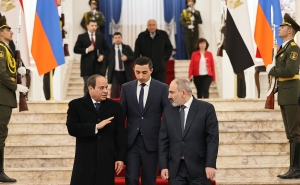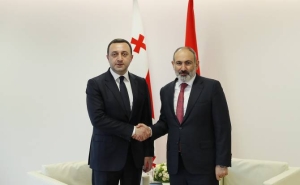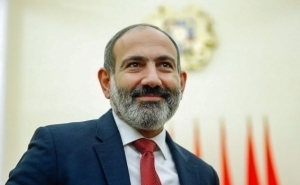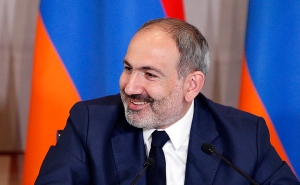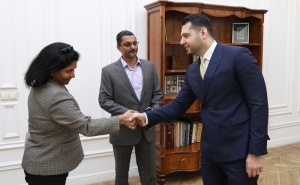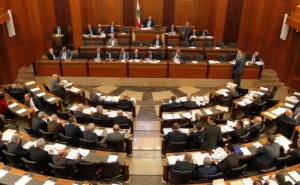Lebanon: The Possible Causes of Political Crisis
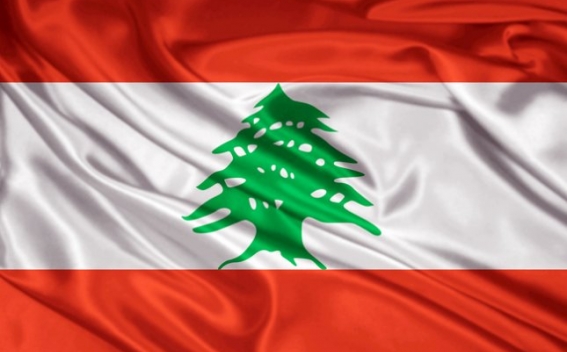
The recent events in Lebanon have raised concerns among many people. The reason is political tension connected with the resignation of Prime Minister Saad Hariri, which does not rule out the possibility of a new phase of instability in Lebanon.
Recall, that Lebanese Prime Minister on his working visit to Saudi Arabia announced that he was going to resign as he thinks his life is in danger. According to him, there is an atmosphere in the country similar to one at the time before his father’s - former Lebanese Prime Minister Rafic Hariri’s death. Lebanon's current Prime Minister blamed Iran and the "Hezbollah" movement for the current situation. The father of the politician, Rafic Hariri, also led the Lebanese government and died in a car bomb explosion in 2005. Following his father's murder, Hariri led his Sunni Future Movement.
Saad Hariri was the Lebanese prime minister in 2009-2011. In 2011, the Lebanese opposition parties came out of the Cabinet in order to protest against the government which was "unable to make tough decisions". All this led to the collapse of the Cabinet. As a result, Hariri continued to fulfill the duties of the Prime Minister four months before the formation of a new Lebanese government (June 13, 2011). In 2012, Syria issued an order for Hariri's arrest, accusing him of arming and funding Syrian opposition groups. In November last year, Hariri was again appointed as prime minister of Lebanon, promising a new era after two years of political unrest in the country.
Hariri has always been fixed on Iran and Hezbollah. In his opinion, Iran has always spread "fear and destruction" in neighboring countries, including Lebanon. Taking into account his attitude towards Iran, it is not accidental that he paid frequent visits to Saudi Arabia, which he considers to be the main enemy of Iran in the region, besides, he was also born there. By the way, it was in Saudi Arabia, as already mentioned, that he declared his resignation from the post of Prime Minister. Lebanese President Michel Aoun has not accepted Hariri's resignation yet, saying that he is waiting for the Prime Minister's return to find out the reasons for his resignation. While the Prime Minister of Lebanon is missing from the country, the President and Lebanese political and religious figures are actively engaged in debating the crisis in the country and the possible escalation of interfaith relations. It should be noted that the resignation of the prime minister caused anxiety among the public. However, it is not known yet whether Hariri is going to return to Lebanon or not.
It is noteworthy that, according to some sources, Hariri is under house arrest in Saudi Arabia, because of suspicion of having connection with the corruption scandal. Representatives of the Al-Mustaqbal movement already denied this information, saying that Hariri has already left El Riyadh and is now in the UAE on a working visit. However, doubts that Hariri traveled to Saudi Arabia not only for a business trip and that the statements of his movement's representatives may be false, confirm the fact that the Lebanese Prime Minister has returned back to Saudi Arabia from the Emirates. Hezbollah leader Hasan Nasrallah in turn said that the reasons for Hariri's resignation should be sought in Saudi Arabia. According to him, this country has forced the Lebanese Prime Minister to resign. In Hassan Nasrallah's opinion, Saudi Arabia could do this as they insist that Hezbollah is behind all the threats to the country’s security and that they are pressuring the Lebanese government to curb the militants.
It is not excluded that the political instability in Lebanon is a consequence of the unique ethno-religious political system in the country. According to the Constitution, Lebanon is a Parliamentary Republic. The legislative power belongs to the parliament, and the executive one to the president, who fulfills it through the ministerial cabinet. The peculiarity of the Lebanese constitutional system is the doctrine, according to which, when appointing high-ranking officials, there is a need to maintain a balance between the representatives of different religious communities. In particular, the post of the country's president must be held by the representative of the Marian community, the prime minister, should be Sunni, the parliament speaker - Shiite, the vice prime minister and the vice president of the parliament - orthodox, etc. Moreover, such a structure has historical bases and it is not accidental. There are at least 17 ethnic and religious groups living in Lebanon, Muslims, Christians, and a small number of Jewish communities.
Representatives of the Armenian community also occupy an important place in the ruling circles of Lebanon. Throughout the existence of the Armenian community in Lebanon, Armenians have been active in different spheres of life in the country: political, cultural, economic, religious, etc. They have always made a great contribution to the country's development. It should be noted that during the whole existence of the state, the president post was three times occupied by the Armenians. The first one was Camille Nimr Chamoun (1952-1958). During his presidency, 10 mandates in the Lebanese parliament were allocated to Armenians. The second Armenian president was Elias Joseph Sarkis (1976-1982). The last Armenian president of Lebanon was Émile Jamil Lahoud (1998-2007). Before his presidency, in 1997, through his efforts, the Lebanese National Assembly adopted a resolution recognizing April 24 as the Remembrance Day of the Armenian Genocide.
-
 17:08
17:08The regular session of the Anti-corruption Policy Council takes place in Jermuk
-
 15:05
15:05The Prime Minister sends congratulatory messages to the supreme leader of Iran and the President of Iran
-
 11:11
11:11Armenia sends earthquake aid to Turkey
-
 10:43
10:43Commemoration of the Pontiff St. Sahak Partev
-
 09:16
09:16Some roads are closed and difficult to pass in Armenia
-
 19:55
19:55Phone conversation of the Foreign Minister of Armenia with the U.S. Assistant Secretary of State for European and Eurasian Affairs
-
 18:30
18:30Prime Minister Pashinyan and President Khachaturyan meet
-
 18:20
18:20Ararat Mirzoyan with Co-Chairman of the OSCE Minsk Group of France Brice Roquefeuil
-
 17:01
17:01Humans could land on Mars within 10 years, Musk predicts
-
 16:45
16:45France, US urge 'immediate' end to Nagorno Karabakh blockade
-
 16:01
16:01Blockaded Nagorno Karabakh launches fundraiser to support quake-hit Syria
-
 15:59
15:59Earthquake death toll in Turkey rises to 18,342
-
 15:43
15:43Ararat Mirzoyan Held a Telephone Conversation with Sergey Lavrov
-
 15:06
15:06French president rules out fighter jet supplies to Ukraine in near future
-
 14:47
14:475 Day Weather Forecast in Armenia
-
 14:44
14:44President Vahagn Khachaturyan wrote a note in the book of condolences opened in the Embassy of Syria in Armenia
-
 14:20
14:20Azerbaijan’s provocations impede establishment of peace and stability – Armenian FM tells Russian Co-Chair of OSCE MG
-
 12:57
12:57France representation to OSCE: Paris calls on Azerbaijan to restore freedom of movement through Lachin corridor
-
 11:40
11:40Command of Kosovo forces highly appreciated preparation of Armenian peacekeepers
-
 10:16
10:16The United States withdrew from sanctions against Syria for six months the provision of assistance after the earthquake
day
week
month
Humidity: %
Wind: km/h


